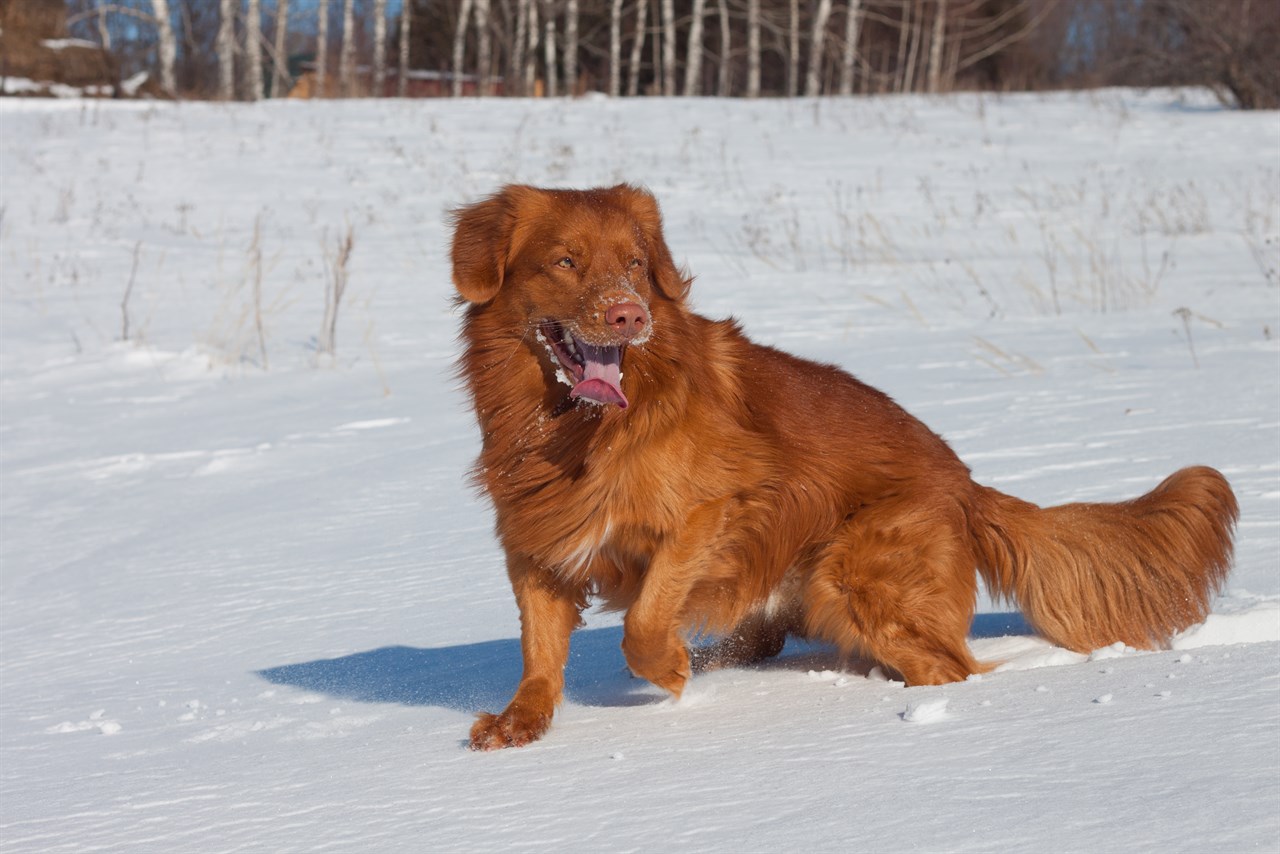Nova Scotia Duck Tolling Retriever: The Master of Duck Trolling

Introduction
The Nova Scotia Duck Tolling Retriever, often affectionately referred to as "Toller," is a captivating and versatile breed that hails from the eastern shores of Canada. With its striking appearance, remarkable hunting skills, and charming personality, the Toller has carved out a special place in the hearts of dog enthusiasts worldwide. In this comprehensive piece, we will delve into the breed's rich history, its characteristics, and address some common questions regarding its rarity and hypoallergenic status.
Breed History
The Nova Scotia Duck Tolling Retriever's history is rooted in the Canadian province of Nova Scotia, where it was developed during the early 19th century. The breed's name is derived from its unique hunting method called "tolling." Tollers would play along the shoreline, attracting the curiosity of waterfowl, while hunters remained hidden. When the ducks approached to investigate, the Toller would leap into action, retrieving the fallen birds.
Tollers are believed to have ancestral ties to various breeds, including retrievers, spaniels, setters, and possibly collies. Their development was influenced by the needs of local hunters who wanted a versatile hunting dog that could excel in retrieving both on land and in water. The breed was officially recognised by the Canadian Kennel Club in 1945 and the American Kennel Club in 2003.
Also Known As
The Nova Scotia Duck Tolling Retriever is also known as the Toller. It is often referred to simply by this shortened name. The breed is known for its ability to "toll" or lure waterfowl, a trait that gives it its full name.
Breed Group and Size
Nova Scotia Duck Tolling Retrievers belong to the sporting group, which encompasses breeds known for their hunting and retrieving abilities. They are considered a medium-sized breed, with adult males typically standing between 46 to 53 cm at the shoulder, and females slightly smaller.
Breed Coat, Colour, and Appearance
Tollers sport a double coat that helps them stay warm when retrieving from cold water. Their outer coat is dense and water-resistant, while the undercoat is soft and insulating. The coat comes in various shades of red, with a white blaze on the face, chest, paws, and the tip of the tail. The Toller's expressive almond-shaped eyes, framed by a gentle, intelligent expression, are typically dark brown or amber.
Their build is well-balanced and athletic, with a moderate length tail that is carried in an upward curve. Tollers have a graceful gait and a strong, muscular body that allows them to excel in agility and retrieving tasks.
Are Tollers a Rare Breed?
While Nova Scotia Duck Tolling Retrievers are not as common as some other retriever breeds, they are not considered exceptionally rare either. Breed popularity can vary by region, but Tollers have gained a dedicated following among outdoor enthusiasts, hunters, and families looking for an active and affectionate companion. It's important for potential owners to do their research and locate responsible breeders to ensure the health and well-being of these dogs.
Are Nova Scotia Duck Tollers Hypoallergenic?
Unfortunately, Nova Scotia Duck Tolling Retrievers are not hypoallergenic. Hypoallergenic breeds are those that produce fewer allergenic proteins in their skin cells, urine, and saliva, which means they are less likely to trigger allergies in sensitive individuals. Tollers, like most dogs, shed dander and have proteins in their saliva that can cause allergies in some people.
Are Toller Dogs Hypoallergenic?
As mentioned earlier, Toller dogs are not hypoallergenic either. The allergenic proteins present in their dander and saliva can potentially trigger allergic reactions in individuals with allergies to dogs.
Conclusion
The Nova Scotia Duck Tolling Retriever is a remarkable breed with a unique history and a distinctive appearance. Their intelligence, agility, and versatility in the field make them exceptional hunting companions, while their loving and loyal nature endears them to families. Although they are not considered a rare breed, it's essential to find reputable breeders and be aware that they are not hypoallergenic. For those who can accommodate their active lifestyle and appreciate their charm, Tollers can make wonderful and rewarding canine companions.
Continue reading our Nova Scotia Duck Tolling Retriever in-depth articles
- Nova Scotia Duck Tolling Retriever Temperament and Behaviour
- Nova Scotia Duck Tolling Retriever Training and Socialisation
- Nova Scotia Duck Tolling Retriever Toilet Training
- Nova Scotia Duck Tolling Retriever Barking Habits
- Nova Scotia Duck Tolling Retriever Grooming Requirements
- Nova Scotia Duck Tolling Retriever Shedding Behaviour
- Nova Scotia Duck Tolling Retriever Sleeping Behaviour
- Nova Scotia Duck Tolling Retriever Diet and Feeding Requirements
- Nova Scotia Duck Tolling Retriever Average Lifespan
- Nova Scotia Duck Tolling Retriever Exercise Requirements
- Nova Scotia Duck Tolling Retriever Common Health Issues
- Nova Scotia Duck Tolling Retriever Suitability Guide
- Nova Scotia Duck Tolling Retriever Advantages
- Nova Scotia Duck Tolling Retriever Disadvantages
- Nova Scotia Duck Tolling Retriever Cost to Buy and Own
- Nova Scotia Duck Tolling Retriever Clubs and Links
- Selling Nova Scotia Duck Tolling Retriever Puppy Litters and Dogs
- Buying Nova Scotia Duck Tolling Retriever Puppies and Dogs
- Nova Scotia Duck Tolling Retriever Alternatives
Nova Scotia Duck Tolling Retriever puppies for sale
- Find Nova Scotia Duck Tolling Retriever puppies for sale in ACT
- Find Nova Scotia Duck Tolling Retriever puppies for sale in NSW
- Find Nova Scotia Duck Tolling Retriever puppies for sale in NT
- Find Nova Scotia Duck Tolling Retriever puppies for sale in QLD
- Find Nova Scotia Duck Tolling Retriever puppies for sale in SA
- Find Nova Scotia Duck Tolling Retriever puppies for sale in TAS
- Find Nova Scotia Duck Tolling Retriever puppies for sale in VIC
- Find Nova Scotia Duck Tolling Retriever puppies for sale in WA